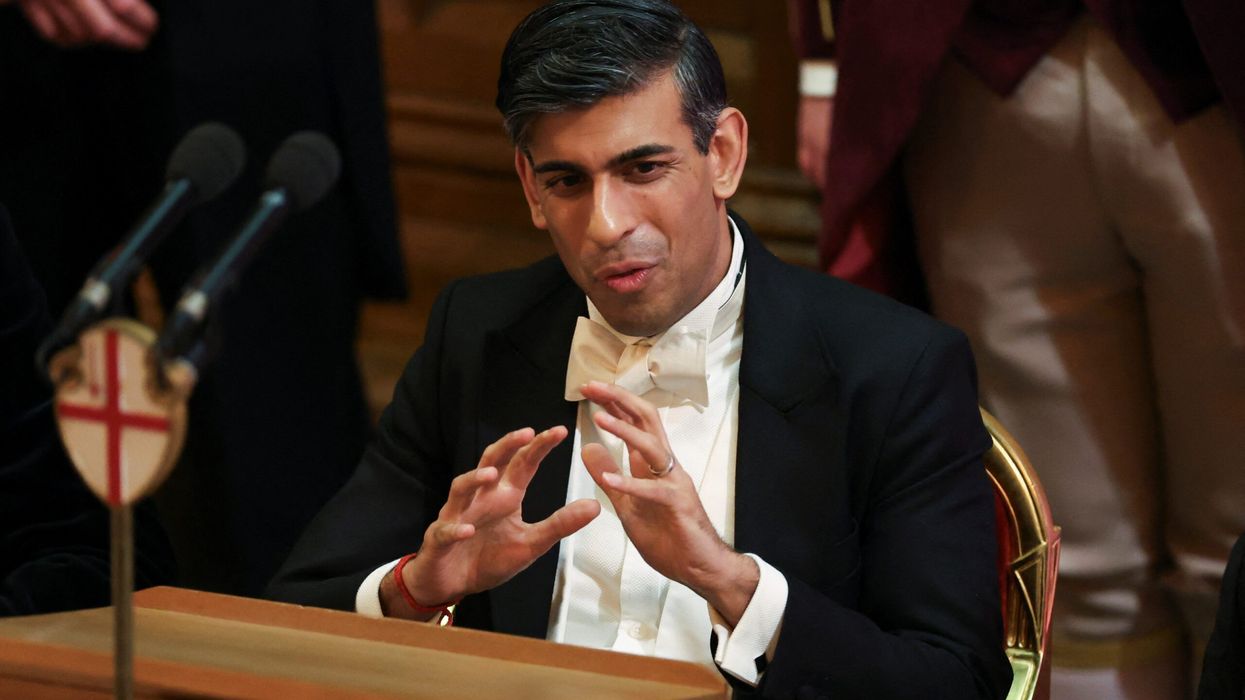BRITAIN's government has already been working on a new treaty with Rwanda and could change the country's laws after the Supreme Court ruled that the plan to send migrants there was unlawful, prime minister Rishi Sunak said on Wednesday (15).
"The government has already been working in advance on a new treaty with Rwanda, which we will finalise in light of today's judgement," Sunak told parliament.
"If it becomes clear that our domestic legal frameworks or international conventions are still frustrating plans at that point, I am prepared to change our laws and revisit those international relationships.
"The British people expect us to do whatever it takes to stop the boats," he added, referring to asylum seekers arriving from France on small boats via the Channel.
The ruling by Britain's Supreme Court earlier on Wednesday dealt a crushing blow to Sunak before an election expected next year.
Under the plan, Britain intended to send tens of thousands of asylum seekers who arrived on its shores without permission to the East African country in a bid to deter migrants crossing the Channel from Europe in small boats.
The Rwanda scheme was the central plank of Sunak's immigration policy as he prepares to face an election next year, amid concern among some voters about the numbers of asylum seekers arriving in small boats.
The ruling sparked an angry response from some lawmakers in the right wing of his party, who said the government should consider pulling out of the European Convention on Human Rights, even though the court made clear its decision was based on a number of laws and treaties, and not the Convention alone.
The ruling had taken on even greater political significance in recent days after Sunak sacked home secretary Suella Braverman, a popular figure on his party's right whose remit included dealing with immigration.
She launched a scathing attack on Sunak on Tuesday, saying he had broken promises on tackling immigration and betrayed the British people.
Sunak said the government had planned for all eventualities and would do whatever it takes to stop illegal migration.
"Illegal migration destroys lives and costs British taxpayers millions of pounds a year," he said in a statement. "We need to end it and we will do whatever it takes to do so."
Sunak, whose Tories are trailing by about 20 points in opinion polls, had made a promise to "stop the boats", one of the five key pledges of his premiership.
This year more than 27,000 people have arrived on the southern English coast without permission, after a record 45,755 were detected in 2022.
Critics, ranging from opposition lawmakers as well as some in the governing Tory party to church leaders and the United Nations refugee agency, had argued the policy was flawed, immoral and simply would not work.
President Robert Reed said the five judges involved agreed there were "substantial grounds for believing that asylum seekers sent to Rwanda would be at real risk of refoulement", meaning being sent back to their country of origin where they could be at risk of ill-treatment.
"The Supreme Court's judgment is a victory for humanity," Steve Smith, chief executive of refugee charity Care4Calais, said. "This grubby, cash-for-people deal was always cruel and immoral but, most importantly, it is unlawful."
The Rwanda policy was originally drawn up by former prime minister Boris Johnson.
Whilst the court said it was now unlawful, Reed left open the chance the scheme could be resurrected, saying "the changes needed to eliminate the risk of refoulement may be delivered in the future, but they have not been shown to be in place now".
After the ruling, a Rwandan government spokesperson said it took issue with the conclusion that Rwanda was not a safe third country.
(Reuters)





